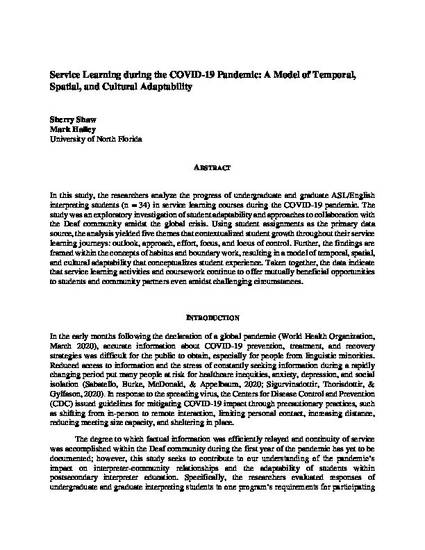
In this study, the researchers analyze the progress of undergraduate and graduate ASL/English interpreting students (n = 34) in service learning courses during the COVID-19 pandemic. The study was an exploratory investigation of student adaptability and approaches to collaboration with the Deaf community amidst the global crisis. Using student assignments as the primary data source, the analysis yielded five themes that contextualized student growth throughout their service learning journeys: outlook, approach, effort, focus, and locus of control. Further, the findings are framed within the concepts of habitus and boundary work, resulting in a model of temporal, spatial, and cultural adaptability that conceptualizes student experience. Taken together, the data indicate that service learning activities and coursework continue to offer mutually beneficial opportunities to students and community partners even amidst challenging circumstances.
Available at: http://works.bepress.com/mark-halley/1/
